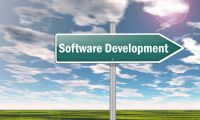Researchers can gain exposure for themselves and their research through the use of their UniSA staff homepage , the National Library of Australia (NLA) website, and the Research Data Australia (RDA) website.
Your UniSA staff homepage provides you with an online profile that is discoverable through external search engines , allowing you to showcase further information about your research, publications, qualifications, professional associations and research interests.
The National Library of Australia (NLA) provides exposure to researchers and showcases their work by allowing users to search for researchers and for their research outputs.
Research Data Australia (RDA) is an internet-based data discovery service designed to provide rich connections between data, projects, researchers and institutions, and to promote visibility of Australian research data collections in search engines. RDA contains researcher records produced by Australian universities and research centres linked via identifiers to the NLA. The metadata displayed by the NLA and RDA websites for University of South Australia records is provided by the University. If you wish to showcase your research on Research Data Australia please contact the AU Research Technology Enablement team through AU IT Interim Support Page.
The UniSA Research Data Access Portal, the National Library of Australia (NLA) and Research Data Australia (RDA) websites provide services that allow researchers to search for research output and reusable datasets for citing in their research.
The UniSA Research Data Access Portal showcases a range of Open Access research collections and datasets developed or collected by the University of South Australia. The UniSA Research Data Access Portal also highlights research projects and publications related to the available collections and datasets, and facilitates a variety of searches such as by researcher, by organisation, by discipline and by keyword. Research collections and datasets available in Open Access can be freely downloaded and used to support your research in line with the terms of the licence under which they are made available .
Using the National Library of Australia (NLA) website you can not only search for researchers and their research output, you can also discover how to access publications and datasets.
Research Data Australia (RDA) is an Internet-based discovery service designed to provide rich connections between data, projects, researchers and institutions. RDA allows you to find, access and re-use data for research from over 100 Australian universities and other research organisations, government agencies and cultural institutions.
 97% of the University of South Australia's research is assessed as world class or above .
97% of the University of South Australia's research is assessed as world class or above .
The University's ranking in research excellence is evaluated through the Excellence in Research for Australia (ERA) process administered by the Australian Research Council. ERA assesses the University's research quality compared to Australian and international benchmarks, and is used to help determine future government funding for research at the University of South Australia.
For further information please see ERA and UniSA ERA's results.
 The University can provide a number of customised software solutions for researchers, including web-based data collection and ingest tools that provide researchers with a facility for data input, collection, reporting and extracts, as well as a number of systems that cater for capture of metadata for experiments and data collections.
The University can provide a number of customised software solutions for researchers, including web-based data collection and ingest tools that provide researchers with a facility for data input, collection, reporting and extracts, as well as a number of systems that cater for capture of metadata for experiments and data collections.
Web applications recently developed by the University include My Data Management Plans (myDMP), the UniSA Research Data Access Portal, and the UniSA Instrument Services Register (Instrument Services Online Tool).
To discuss custom software solutions to assist with your research please contact AU IT Interim Support Page.
The Instrument Services online tool allows authenticated UniSA staff and research degree students to search a database of University-owned research instruments; and facilitates a variety of searches including searches for a specific instrument, searches for a list of instruments within a specific category, and searches for a list of instruments within an Org code. The search tool's extensive catalogue covers a wide variety of research instruments and is being continually refined and expanded as further data is collected and new instrument records are published.
This practical new tool is available now to all authenticated UniSA staff and research degree students (refer here).
The UniSA Research Data Access Portal is your gateway to Open Access research collections and datasets developed or collected by the University of South Australia.
Research collections and datasets available in Open Access can be freely downloaded and used to support your research in line with the terms of the licence under which they are made available; and by featuring your research on the Research Data Access Portal you can gain exposure and make your research more visible by providing a channel for both UniSA and external researchers to re-use and/or cite your research.
My Data Management Plans (myDMP) (UniSA staff access only) is an easy-to-use self-service facility that allows researchers to generate their own data management plans, and allows researchers to self deposit metadata about a project that is not already in the University's research system (My Research Management (MyRM)).
myDMP guides researchers through the process of considering and documenting the many aspects of data management, metadata generation, data storage and preservation, and ensures continual analysis at critical points of a research project's lifecycle.
This ensures data is well-managed in the present, and prepared for preservation in the future.
The National eResearch Collaboration Tools and Resources (NeCTAR) project provides Australian researchers with access to a full suite of virtual laboratories and a collection of eResearch tools.
For custom websites to support research projects, groups and organisations please contact AU IT Interim Support Page.
The Research pillar of the Staff Portal provides researchers with information about research and research degrees at UniSA, administration links, research support resources, key contacts, research activities and services, and research supervision.